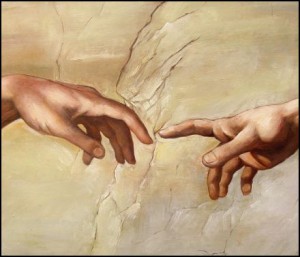They key challenge from Haggai is to “consider your ways.” It appears six times in the book. In a way it’s a call to reflect on life as a whole and my own life in p articular. Socrates said, “The unexamined life is not worth living.” I would argue that the wise man of scripture is the one who is always “considering” his ways or examining his life. Many Christians hold a little disdain for Philosophy. They shouldn’t! Philos means love and Sophia means wisdom. Philosophy is the love or the pursuit of wisdom when rightly understood.
articular. Socrates said, “The unexamined life is not worth living.” I would argue that the wise man of scripture is the one who is always “considering” his ways or examining his life. Many Christians hold a little disdain for Philosophy. They shouldn’t! Philos means love and Sophia means wisdom. Philosophy is the love or the pursuit of wisdom when rightly understood.
“Where did I come from?” Is the first and most important reflection on life. If we see ourselves as coming through a random evolutionary process we will view all life from this foundational premise. It says nothing plus infinite time plus chance equals everything that exists today. Even though I’ve argued in favor of this perspective in the past, it has never been completely convincing to me. Even though it’s the predominant view in our world, it is the most unsatisfactory view I can imagine. Thankfully, there is another option.
Tozer writes, “Everything has an origin. When you hear a bird sing, you know that once that bird was packed in a tiny little egg. It came from somewhere; it came from an egg. Where did the egg come from? It came from another little bird. And that bird came from another little egg, and that egg came from another bird, and so on, back, back, back to the heart of God.” Behind everything that exists is an intelligent Being who started it all. God’s Word, the Bible, begins with the answer to the most important question of philosophical reflection for all of life. It says, “In the beginning God…” He not only started the process but continues to guide it with some ultimate purpose in mind.
Chuck
“For the LORD gives wisdom; from his mouth come knowledge and understanding.” Proverbs 2:6